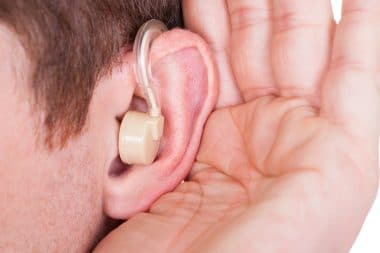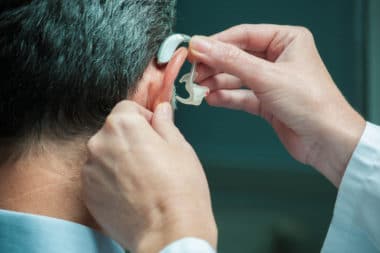Among human age groups, infants and the elderly are considered two of the most vulnerable. For infants, it is because their organs and immune system are not yet fully developed. For older adults, the reason is often related to degeneration.
Hearing Loss In the Elderly
As people age, the inner ear, including the nerve pathways, undergo degeneration, which can significantly affect hearing. Often, the changes are secondary to the integrity of the hair cells located in our inner ear. These hair cells are responsible for translating the sound waves the ears collect into electrical signals that the brain can interpret as a recognizable sound. Unfortunately, these hair cells do not regenerate, so any damage is considered permanent.
Common Reasons for Hearing Loss
Apart from degeneration, hearing loss is pretty common in the elderly because of the following:
Noise Exposure
The human ear can perceive sound frequencies ranging from 20 Hz to 20 kHz. Anything below is considered infrasounds, which can no longer be heard by the human ear. Constant exposure to noise nearing the highest pitch can cause irreparable damage to the hair cells located in the cochlea and affect hearing.
Genetics
Studies have found that individuals with parents or relatives that had hearing loss have higher risks for developing the same. However, genetic hearing loss is often apparent during birth. In some cases, symptoms can develop late in life, but these are often rare.
Medical History
Some medical conditions predispose an individual to develop hearing loss. Individuals who have diabetes and heart diseases may have problems in blood circulation that can affect hearing.
Drug Toxicity
Patients with medical conditions taking medications for an extended period can suffer from ototoxicity, causing hearing problems.
Warning Signs of Hearing Loss
Sometimes, individuals may not be aware that they are already suffering from hearing loss. According to Helix Hearing Care, here are some of the warning signs you should note that may indicate you are already suffering from hearing loss in the elderly or presbycusis:
Difficulty In Selecting Sounds to Listen To
There may be times when you may find it hard to understand speech when there are other noises.
Asking Others to Repeat Their Words
If you are always asking people to repeat what they have said can be a warning sign that you may have trouble hearing. In some cases, other people may appear to you as merely mumbling or slurring their speech when they aren’t. This may mean that you only hear them but do not understand.
Hard to Hear High-Pitched Sounds
Individuals developing hearing loss may also find it hard to discern high-pitched sounds such as the chirping of birds and ringing of the telephone.
Presence of Ringing Inside the Ear
Also known as tinnitus, those with hearing problems often complain of continuous buzzing or ringing sound inside the ear.
Age-Related Hearing Loss: Treatment
Presbycusis is a type of sensorineural hearing loss and does not have any cure. However, there are treatment options, including:
Hearing Aids: For mild to moderate hearing loss, hearing aids can help. First, they need to undergo a thorough hearing evaluation so healthcare providers can suggest the appropriate type and style of hearing aid to use.
Cochlear Implants: Most Older adults benefit from having a cochlear implant, particularly those with severe hearing loss. These devices will have to be surgically implanted behind the ear to allow you to detect sound and understand speech.
Assistive Listening Devices (ALDs): ALDs can help the elderly amplify the sound to hear better. They can be used with or without hearing aids, depending on how severe your hearing loss is.
Taking good care of your ear can help prevent age-related hearing loss. This may mean making some significant lifestyle changes.








Reply